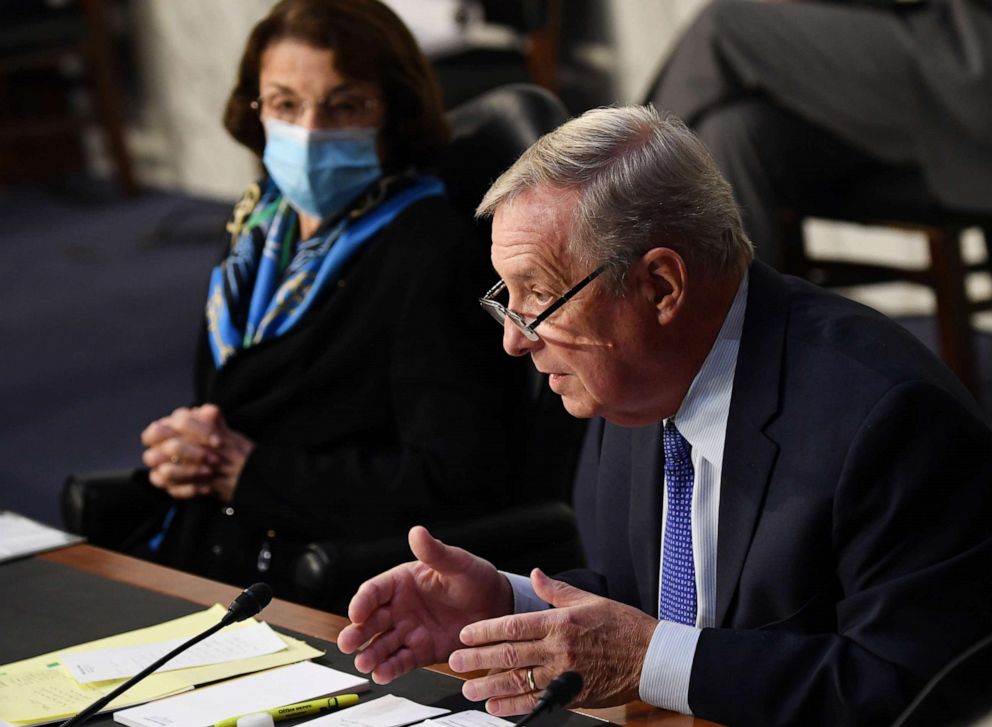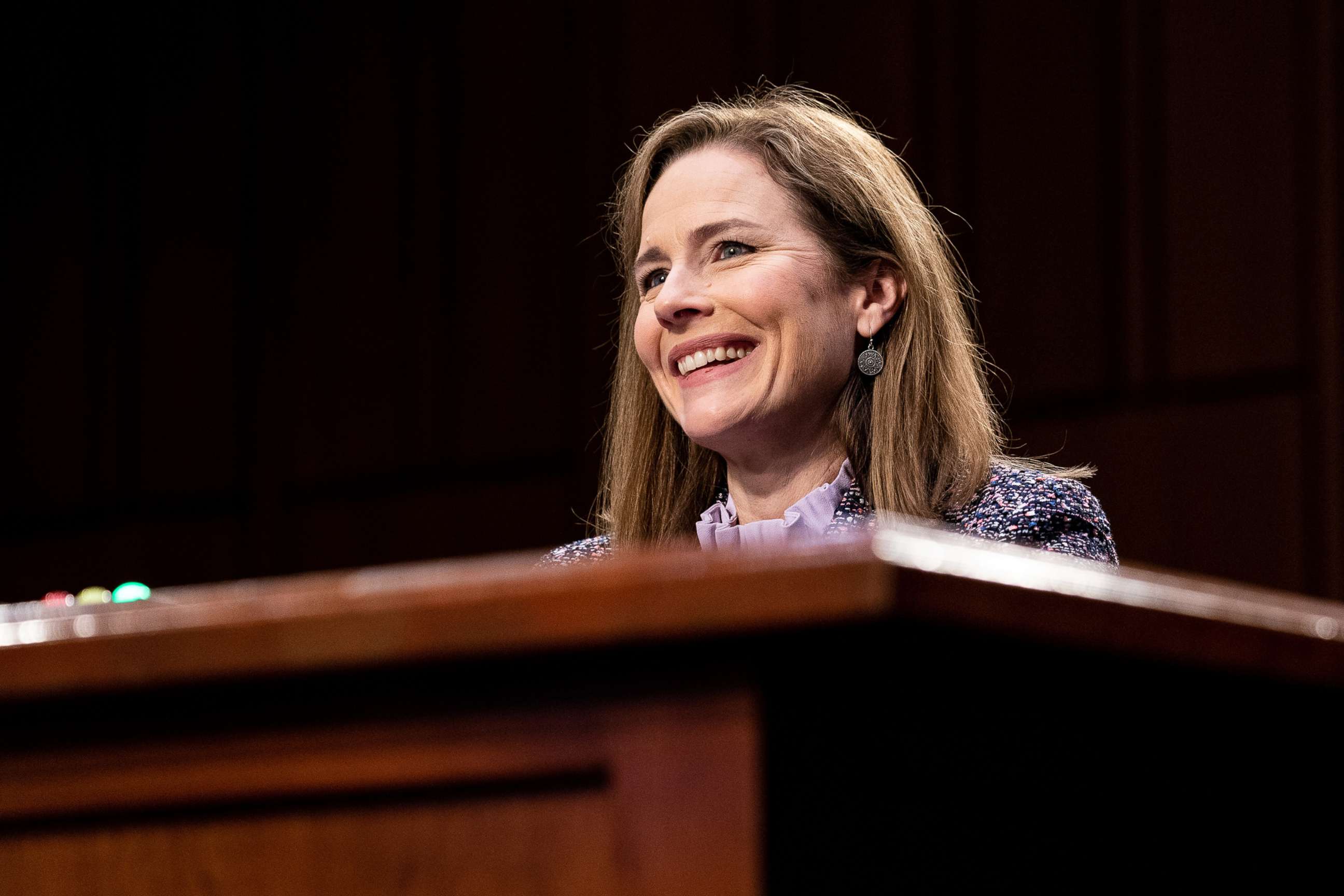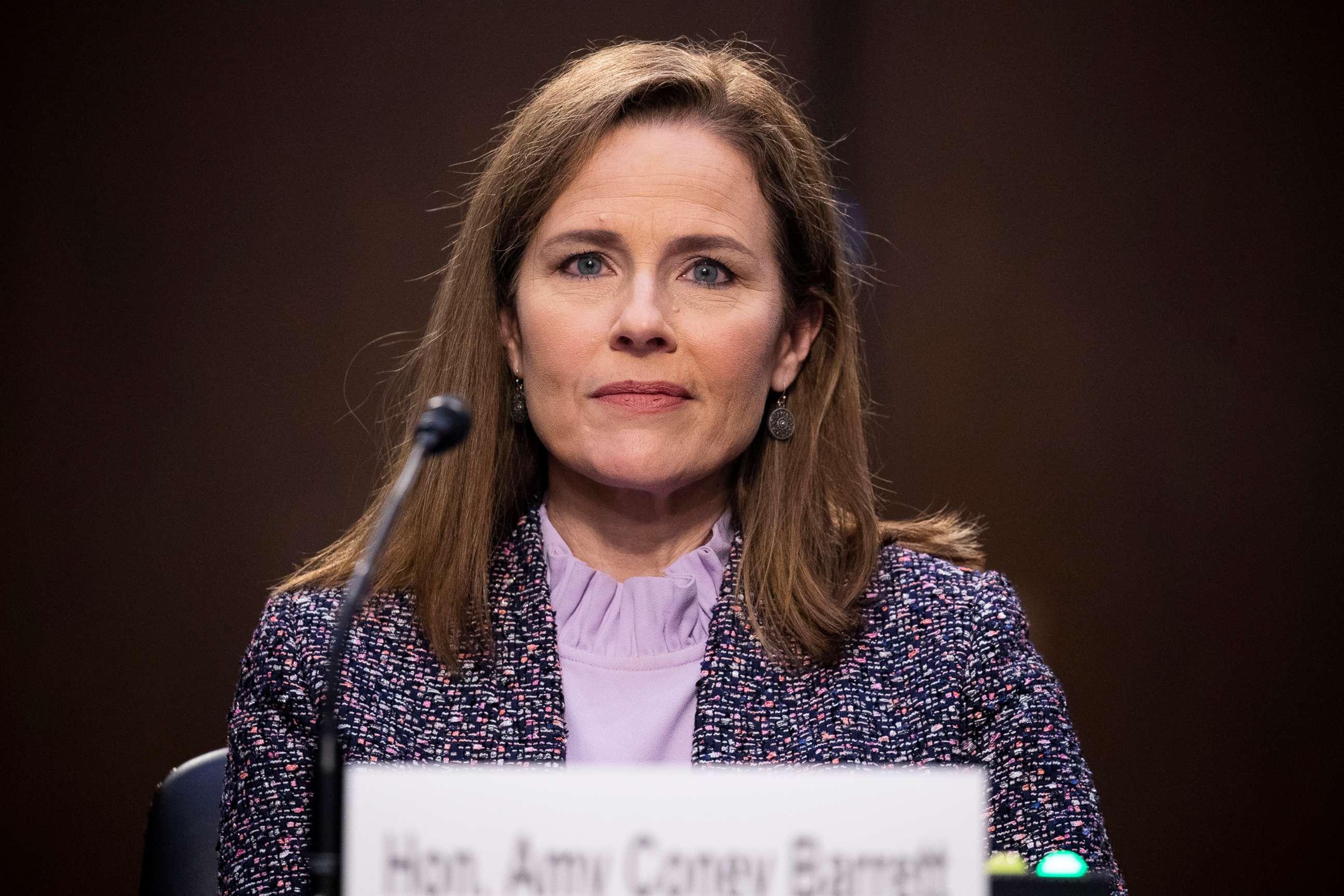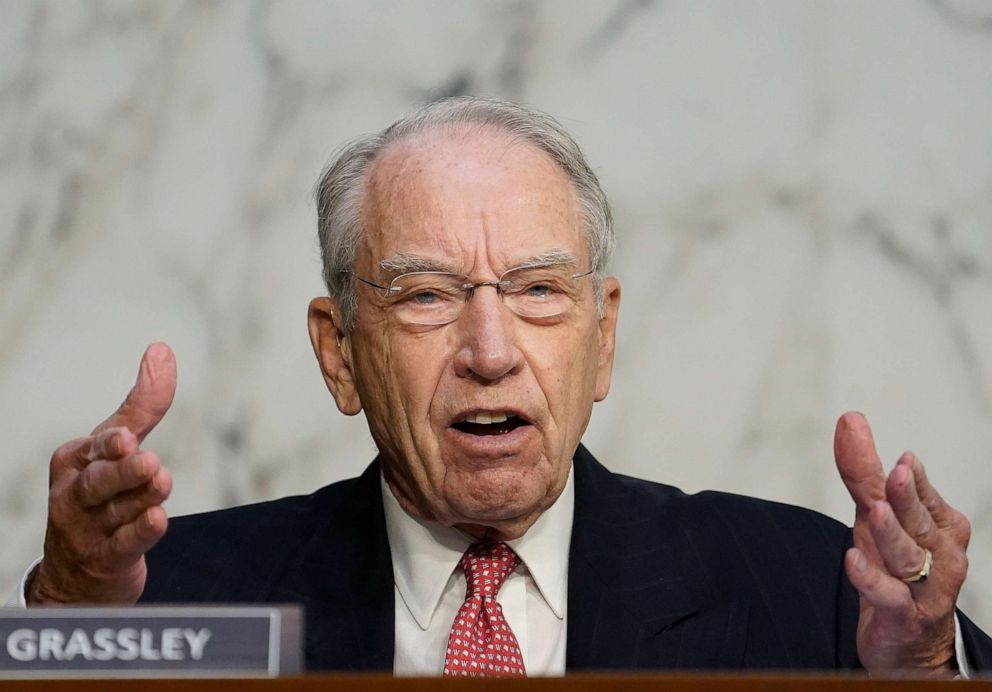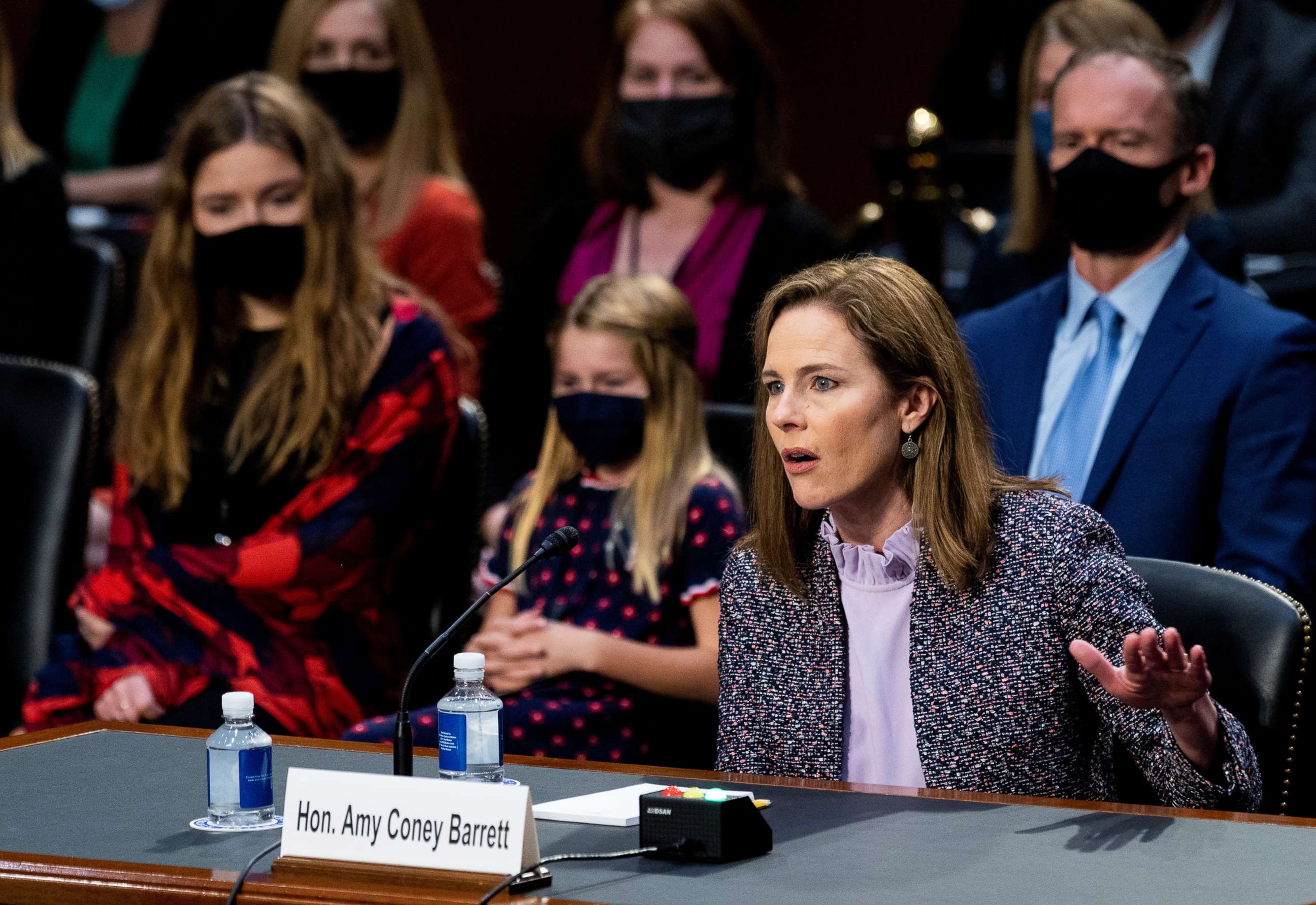Durbin presses Barrett on gun rights vs. voting rights for non-violent felons
Sen. Dick Durbin, D-Ill., raised Barrett's dissent in a case she dealt with on the Seventh Circuit Court of Appeals, Kanter v. Barr, in which she suggested the Constitution protects the right of non-violent felons to own guns but does not protect their right to vote -- a right she wrote belongs "only to virtuous citizens."
"Here is what it boils down to," Durbin said, laying out his case. "After Heller, after the decision, after Scalia's statement, you concluded that any felony can take away your right to vote, but only a violent felony can take away your right to purchase an AK-47."

"Senator, with respect, that is distorting my position," Barrett interrupted. "What I said in the case, which is what Heller said and which is conventional in all discussions of this, to my knowledge, is that the right to vote is fundamental. However, it is an individual, fundamental right we possess, but we possess it as part of our civic responsibility for the common good."
"It is a distortion of the case that I ever said that voting is a second-class right," she added.
Durbin pressed forward, hoping to get a new answer from Barrett, but she held her ground.
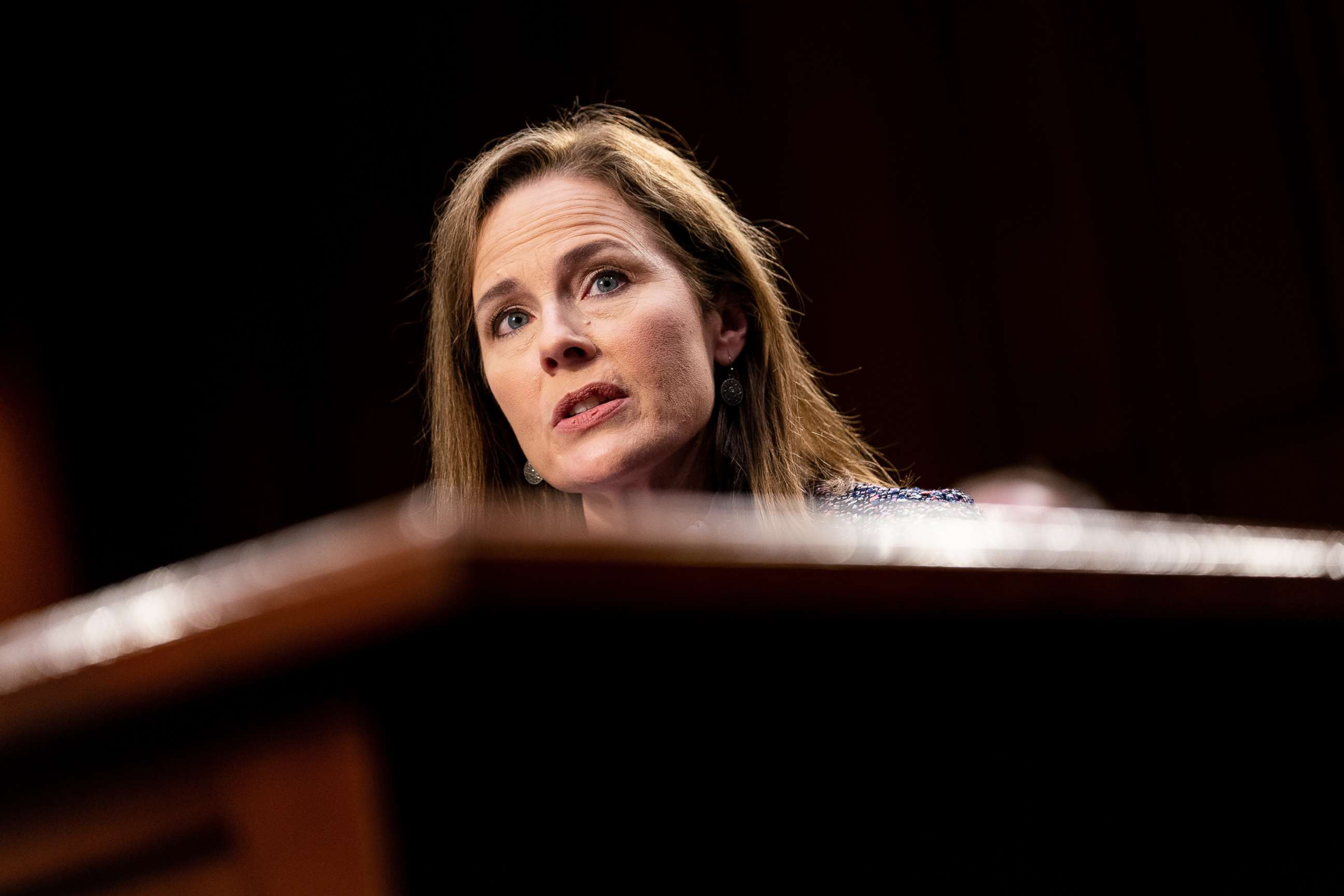
"When you finished with your dissent here’s what it came down to say, if you are guilty of a felony that is not violent, you can lose your right to vote. You can't lose your right to buy a gun. Am I wrong?"
"Senator, Kantor had nothing to do with the right to vote. The point I was making in that passage, the 14th Amendment actually expressly allows for states to deprive felons the right to vote. And my point was there is no similar language in the Second Amendment," she began.
"I don't have an opinion and have never expressed one about the scope of a legislature’s authority to take away felon voting rights. What I said is there is a history of provisions and state constitutions and the federal Constitution, but I did not intend and if my words communicated that, this is a miscommunication. I never denigrated the right to vote," she said.
To which Durbin replied, "It was, at best, a serious miscommunication."
In another line of questioning, Durbin pressed Barrett on why she won’t say whether a president can unilaterally delay an election and she reiterated that she won’t discuss “legal hypotheticals” whether they are "easy or hard" questions.
